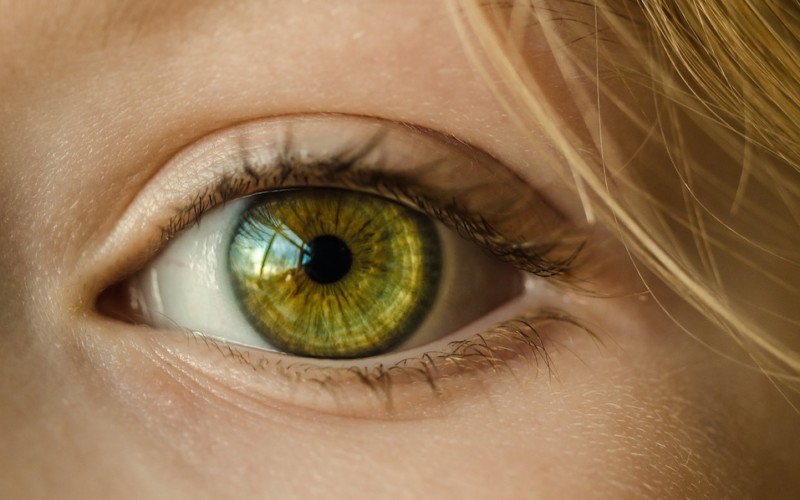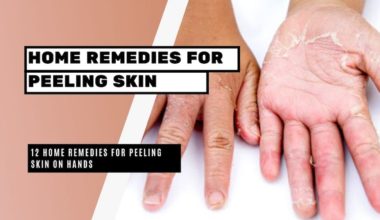Few things are as annoying as eye problems in general, and dry eyes in particular. You seldom think of your eyes until something is amiss. Dry eyes can be a stand-alone problem, a complication of allergies, or a sign of an infection. No matter the cause of the problem, read on to see remedies for dry eyes. We guarantee, there won’t be a dry eye in the place when we’re done.
Table of Contents
Background of the Dry Eyes
Before the remedies for dry eyes, we should first understand the background of the issue. So, let’s go back to biology class and review the basic function of basal tears, the tears that exist solely to lubricate your eyes. Basal tears moisturize the eyeball, as well as keeping it clean and adding a layer of protection to the eyeball to prevent damage. In addition, the tears provide vital nutrients to the eyeball, much the same as the action of blood internally. In fact, tears are formed from blood plasma.
Basal tears, like all other tears, are formed in the lacrimal glands (what we commonly call tear glands). They contain electrolytes, mucus, proteins, and lipids and are made from mucus, oil, and water. Tears contain a natural antibiotic to keep the eye healthy and free of germs and infection.
Mucus is a thicker, sticky substance that coats the eye to help the basal tears bind to it. If the mucus isn’t the right consistency, it can result in dry pockets on the eyeball. If there isn’t enough oil in the tear, you will get dry eyes, too. Anything that blocks the tear from doing its job will lead to dry eyes, infection, and irritation.
Dry Eyes Causes
The best way to relieve dry eyes is to understand what process is leading to your specific problem. Dry eye syndrome, also known as xerophthalmia, keratitis sicca, and keratoconjunctivitis sicca, can leave the eye feeling scratchy and gritty.
Additionally, eye irritation caused by dry eye syndrome can lead to feelings of burning, light sensitivity, redness, and abnormal discharge.
Some of the biggest culprits that can lead to dry eyes include:
- Hormonal changes such as menopause, pregnancy or menstruation
- Contact lenses
- Aging
- Hyperfocus that deters blinking, such as gaming or computer use
- Medications, such as antihistamines and decongestants, some birth control pills, and antidepressants
- Environmental factors like wind, dust, smog, and smoke
- Certain autoimmune disease processes, like rheumatoid arthritis or lupus
Dry Eyes Treatment
If these natural ways aren’t enough to relieve dry eyes, move on to over the counter medications.
1. Artificial tears: These contain substances found in natural basal tears and can be used as often as needed throughout the day.
2. Redness relieving drops, gels, or ointments: These contain vasoconstrictors to decrease the appearance of red, swollen veins in the eye.
3. Allergy drops, gels or ointments: Will contain antihistamines to encourage the eye to produce its own tears if the over the counter solutions aren’t enough, your doctor may have answers for you. These can include:
- Prescription eye drops can include Restasis and Xiidra.
- Steroid drops can reduce the irritation and inflammation associated with dry eyes.
- Lacrisert is placed near the tear duct on the eye and will dissolve throughout the day to give you continuous lubrication and relieve dry eyes over extended periods of time.
- Punctal plugs are tiny, sterile objects that act as a barrier to keep tears from draining out through the drainage ducts in the eye, increasing the time basal tears remain on the eyes.
- Meibomian gland expression can be done in-office to remove blockages from the tear duct
Diagnostic Testing for Dry Eyes
While there are over the counter drops to temporarily relieve dry eyes, sometimes they aren’t enough. You may need to schedule an appointment with an ophthalmologist for additional testing, prescription eye drops, or even a procedure to relieve dry eyes.
- The tests your eye doctor will perform are pretty basic and pain-free.
- Your doctor can measure the length of time it takes the tear to “break up” on the eyeball, a test called the TBUT.
- Your eye doctor may use a temporary dye to see what areas of the eye are not receiving basal tears
- Your doctor can use a small piece of paper to touch the lower eyelid. This procedure, called the Schirmer test, measures how much moisture is on the eye.
- Once you are diagnosed with dry eye syndrome, your doctor can choose an appropriate dry eyes treatment option for you.
Dry Eyes Home Remedy
If your eye issues are predictable and temporary, like those accompanying allergy season or after exposure to pollutants at work, you can use over the counter eye drops to relieve dry eyes. If you are looking for more natural simple home remedies for dry eyes, here are some of the best:
- Increase Omega 3 fatty acids
- Warm compresses on the eyes can remove blockages from the tear ducts
- Supplements containing Astaxanthin
- Light therapy consisting of pulses of light in a controlled environment
- Eye massage, consisting of rubbing the eyelids to stimulate the lacrimal glands
- Increased exercise
- Close the eyes for a few minutes or blink rapidly
- Consider using NAC (N-acetyl-cysteine), a substance known to break up plaque on the cornea
You can make some lifestyle changes to cure dry eyes, too. These can include:
- Change your approach to the environment by wearing sunglasses or other eye protection on windy days or when exposed to pollutants
- Minimize screen time on your computer, watching TV, or when gaming
- Eliminate air blowing into your face; redirect your air ducts or fan from blowing into your face
- Stay away from smoke, smog or dust if possible
- Be careful in using eye makeup and choose only hypoallergenic brands
Final Considerations For Dry Eyes Relief
- If you suffer from dry eyes and wear contacts, you will need to limit your use of them until the symptoms have resolved.
- Women should always make sure they remove all eye makeup from lids and lashes completely every night.
- You can cleanse your eyelids with a gentle mixture of a non-irritating baby shampoo once a day to help keep your eyes free of bacteria.
- Ask your pharmacist if any of your medications may be causing your dry eyes.
While it is an annoyance, these conditions seldom indicate anything more serious than a need for a temporary treatment or a few small lifestyle changes to help you relieve dry eyes.





